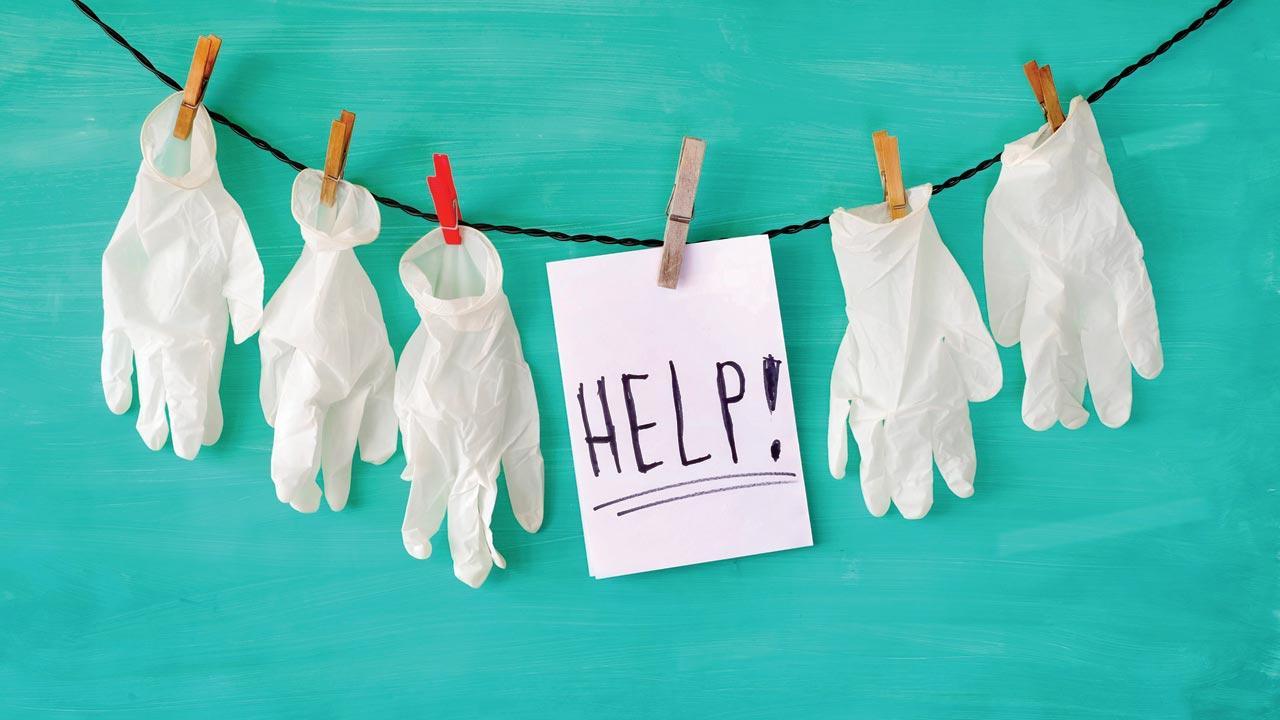2021 may go down as one of the most tragic years in our country’s history, and one of the least critical

We need to ask ourselves what the tipping point is, and evaluate when we should start to point fingers at ourselves instead of at imagined enemies of the state. Representation pic
I spent much of April and May alternating between sadness and anger, scrolling through messages of despair and cries for help online. There were people weeping for the loss of parents, appalling photographs of bodies piled on streets, and the pain of those destined to watch loved ones die gasping for air as they struggled with their own helplessness.
ADVERTISEMENT
Juxtaposed alongside these heart-breaking stories were reports of state governments forbidding citizens from broadcasting cries for help, threats from local police to young people trying to organise aid, requests from questionable journalists asking everyone to stay calm, and the loud silence of men and women who have been screaming about the promise of better days since 2014.
We are a morally bankrupt nation. What makes this more dangerous than it already is, is our inability to accept this about ourselves. Nothing, not even a pandemic that has already claimed the lives of over 2,00,000 of our countrymen, has had the power to snap us out of our apathy and confront the truth that the people we elected have failed on all fronts.
I have been ashamed to read what former colleagues have spent their time doing, while so many of us focused on survival. People I worked with, people who once called themselves journalists and earned salaries from media houses by pretending to speak “truth to power”, bent over backwards to hide the failures of our political leaders. They did this not simply because they were bribed or coerced — because a lot of them presumably were and continue to be — but because these leaders pandered to the bigotry that has long taken root in the hearts of millions of us, blinding us to what our country has turned into as we become pawns at the hands of criminals.
It took the world’s press to highlight what we should have accepted a long time ago, that India has no healthcare system to speak of. We applauded the purchase of airplanes, thought long and hard about buildings in Delhi that needed to be replaced, and turned on those who proclaimed that tall statues and religious structures didn’t matter in a country that has yet to address deaths from malnutrition. This is what allowed our elected representatives to divert our hard-earned money towards pet schemes that helped themselves alone. This is why we had to run from pillar to post for oxygen cylinders and hospital beds. This is why we called reporters vultures for holding up a mirror we had long buried under our beds.
What broke my heart was the inhumanity that crept through even in the face of unconditional kindness. While thousands of people volunteered time and energy connecting patients with medical aid, there were those who used this crisis as a means of enriching themselves, hoarding supplies, marking up products for obscene profits, and even offering goods and services that didn’t exist so they could pocket a fee and vanish. They are as much to blame as the uncaring politicians who left us to our own devices, and I hope history will be as unkind to them as it will undoubtedly be to the pompous Neros fiddling in Parliament while bodies burned.
We need to ask ourselves what the tipping point is, and evaluate when we should start to point fingers at ourselves instead of at imagined enemies of the state whipped out of thin air by a government more obsessed with public relations than governance. We need to question why our minister of external affairs wants people outside to stop questioning India. We need to ask ourselves why we don’t call out negligence and apathy until it reaches our doorsteps and snatches the lives of our parents, grandparents, and relatives.
Even as I type this, so many newspapers gloss over what we can all see in the glaring light of day. Anchors on dubious news channels are asking us to shut our eyes and accept things that do not exist. Ministers are laughing off deaths as statistics and ordering us not to panic because this makes India look bad. At what point do we put up our hands?
When we look back at 2020 and 2021 and remember the faces of those who were taken from us, we should also accept that their deaths are a result of how we chose to live. Those of us who saw the atrocities, inhumanity, and inadequacies of this Prime Minister and his government but refused to speak up, have blood on our hands.
When he isn’t ranting about all things Mumbai, Lindsay Pereira can be almost sweet. He tweets @lindsaypereira
Send your feedback to mailbag@mid-day.com
The views expressed in this column are the individual’s and don’t represent those of the paper
 Subscribe today by clicking the link and stay updated with the latest news!" Click here!
Subscribe today by clicking the link and stay updated with the latest news!" Click here!






